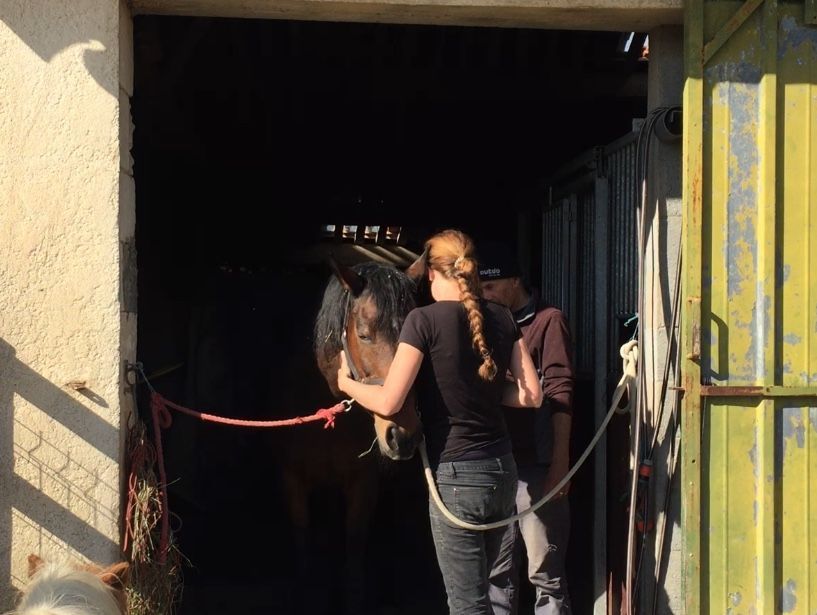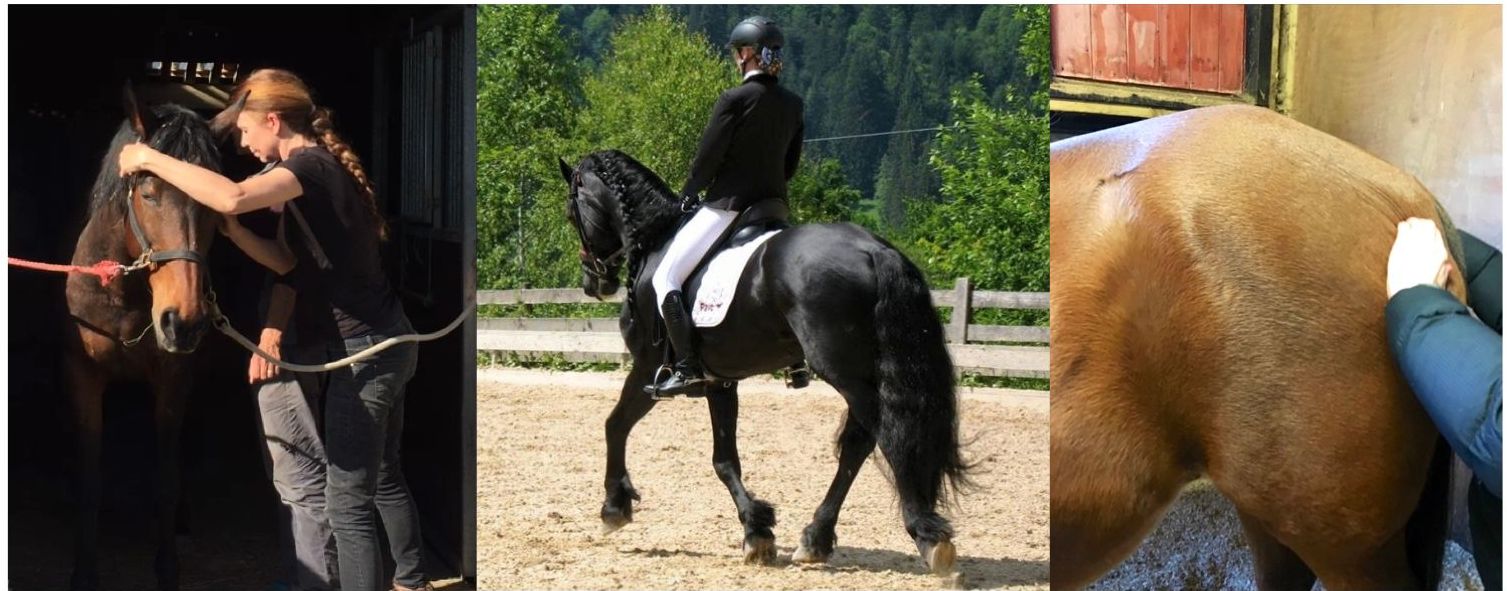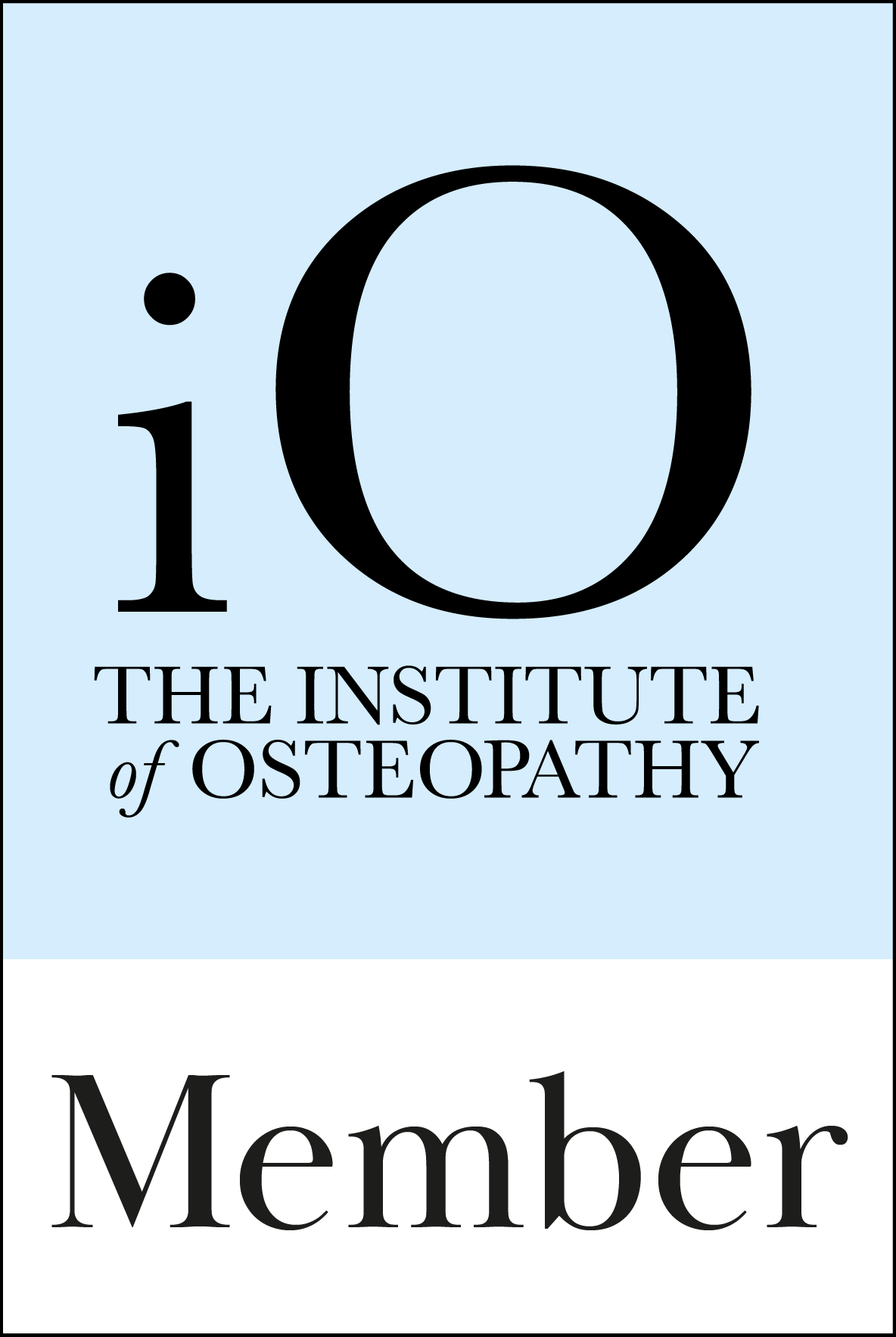Equine Osteopathy
Helping your horse with osteopathy
Equine osteopathy is well known for its benefits to horses performance and well being.
Equine osteopathy utilises the same techniques as for humans:
- active examination of their movements, passive mobility of joints, palpation of muscles, tendons and ligaments
- followed by treatment using various types of soft tissue techniques, massage, mobilisations, gentle manipulations as well as neuro-integrative techniques such as NIS, acupressure and meridian releases.

"I love treating horses and ponies - just like small children, they tell me, in their own, individual and inimitable ways, exactly how they are feeling throughout the assessment and treatment, and how I should best work to help them."

Assessing your horse or pony
Assessment of your horse or pony is really very similar to that of humans.
We will discuss the problem you are having with your horse and then assess them at rest and in motion. If appropriate, you may be asked to ride your horse.
Just with human consultations, the most suitable methods used to treat your particular horse or pony will be chosen.
Sometimes the rider or handler may also have some dysfunctions that are impacting on the horse's problem. We will discuss these possibilities and the best course of action.
In most cases, I prefer you to consult your vet before I assess your horse or pony, particularly if they have been showing signs of lameness or illness.
Neurological Integration System
Now there is a new modality of treatment for your horse: the Neurological Integration System or NIS.
NIS is a neuro-integrative form of medicine for humans, which has been developing since 2003 and has taken a big leap forward with the latest release of research from the Neurolink Global Research Centre in New Zealand at NIS Masters, Germany in 2020.
I have been developing the use of equine NIS in my osteopathic treatment of horses over the last few years. It is particularly suitable for very sensitive horses and for those for whom other methods have not been working. Some horses do not like classic hands-on treatment approaches - even very gentle approaches like cranio-sacral technique, acupressure or Masterson's method seem too invasive for them. In my experience, NIS is readily accepted by horses and ponies.


Getting to the cause of the problem
NIS is a fantastic tool for delving deep into the root causes of conditions.
Health is more than the absence of obvious disease. It is dependent upon the individual and is a reflection of an harmonious interaction with our environment - both internally, within our body, and externally. Dysfunction in one area invariably leads to disruption elsewhere.
All functional areas of the body - the musculoskeletal system, organ function, hormonal balance, the immune system, emotions and behavioural patterns - are monitored and coordinated by the central nervous system.
The Neurological Integration System reveals disturbed communications between all the horse's systems and enables a "reset" of the normal connections. Comparable to an update for a troubled operating system of a computer, only many times more complex!
Treating your horse or pony with NIS
Treatment using NIS is extremely gentle and horses and ponies very readily accept it. The best place for treatment is loose in a large stable or small yard, so that the horse is free to move between protocols, but, if necessary, the horse can of course be tied or held by a helper.
The only strict requirement is that the horse does not have access to food or titbits during the treatment session.
Although NIS treatment is a complete assessment and treatment approach in its own right, on occasion I may recommend some classic osteopathic techniques in order to obtain the most efficient and effective results.


Julia Williams
Julia Williams is an osteopath and naturopath with over 27 years clinical practice, with a particular expertise in long-standing or difficult cases of back or joint pains.
She is passionate about helping people realise their optimum health potential. I use Tai Chi in my daily practice to assist clients in recovering from injury or who wish to improve their body-mind balance and awareness.
Julia sees patients in my clinics in London as well as visiting yards around the UK as an equine osteopath.

Registered Osteopath
The General Osteopathic Council (GOsC) regulates the practice of osteopathy in the United Kingdom. By law, osteopaths must be registered with the GOsC in order to practise in the UK.
Julia Williams is a member of the Institute of Osteopathy (iO). The iO is the largest membership body of osteopaths in the UK and works to support, unite, develop and promote the osteopathic profession for the benefit of patient health.
Julia Williams is registered with the health agency of the French region of Nouvelle-Aquitaine, ADELI number: 170004428
An ADELI number is assigned to all salaried or self-employed practitioners and serves as their reference number.


